Webinar, “Facilitating change in conflict-vulnerable communities”
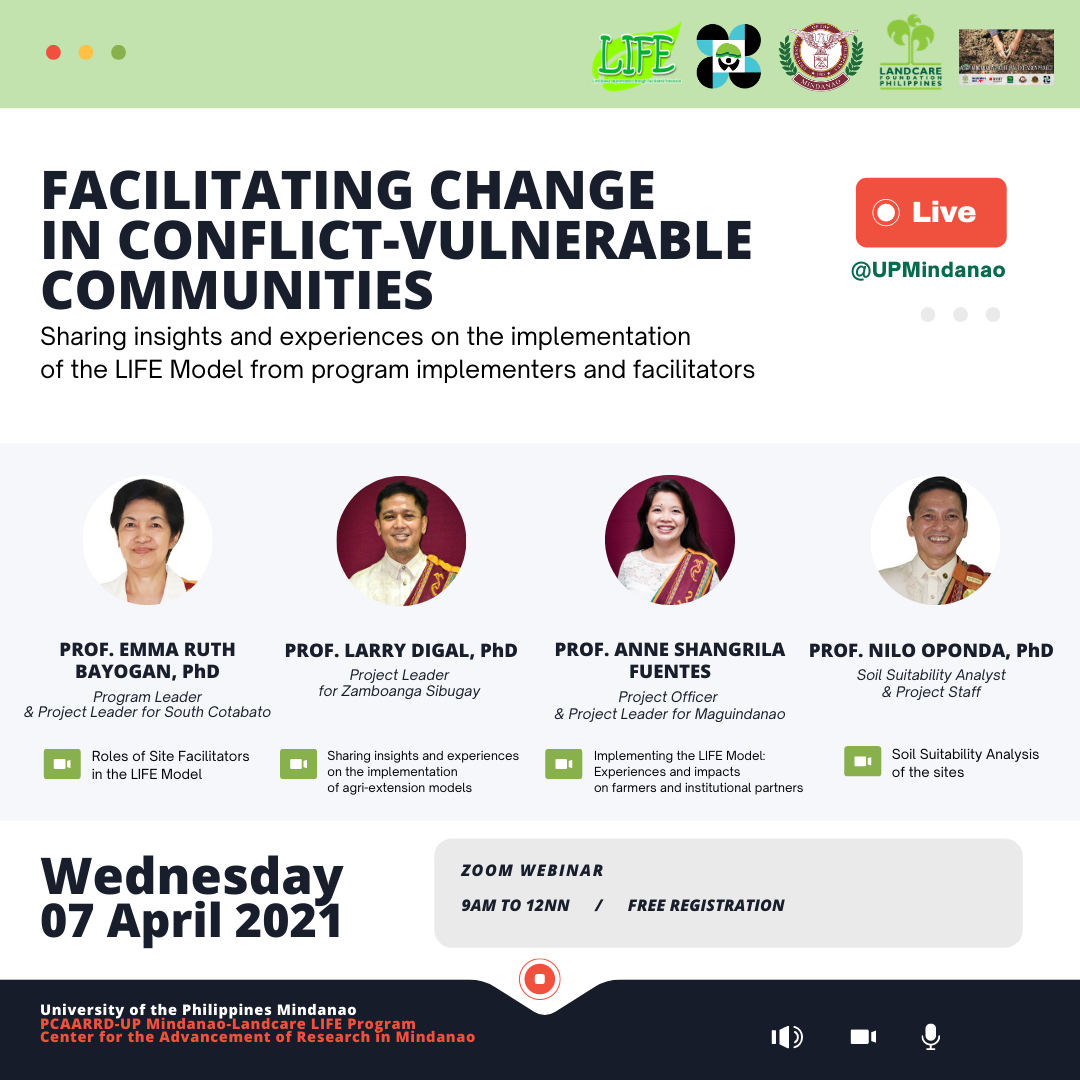 |
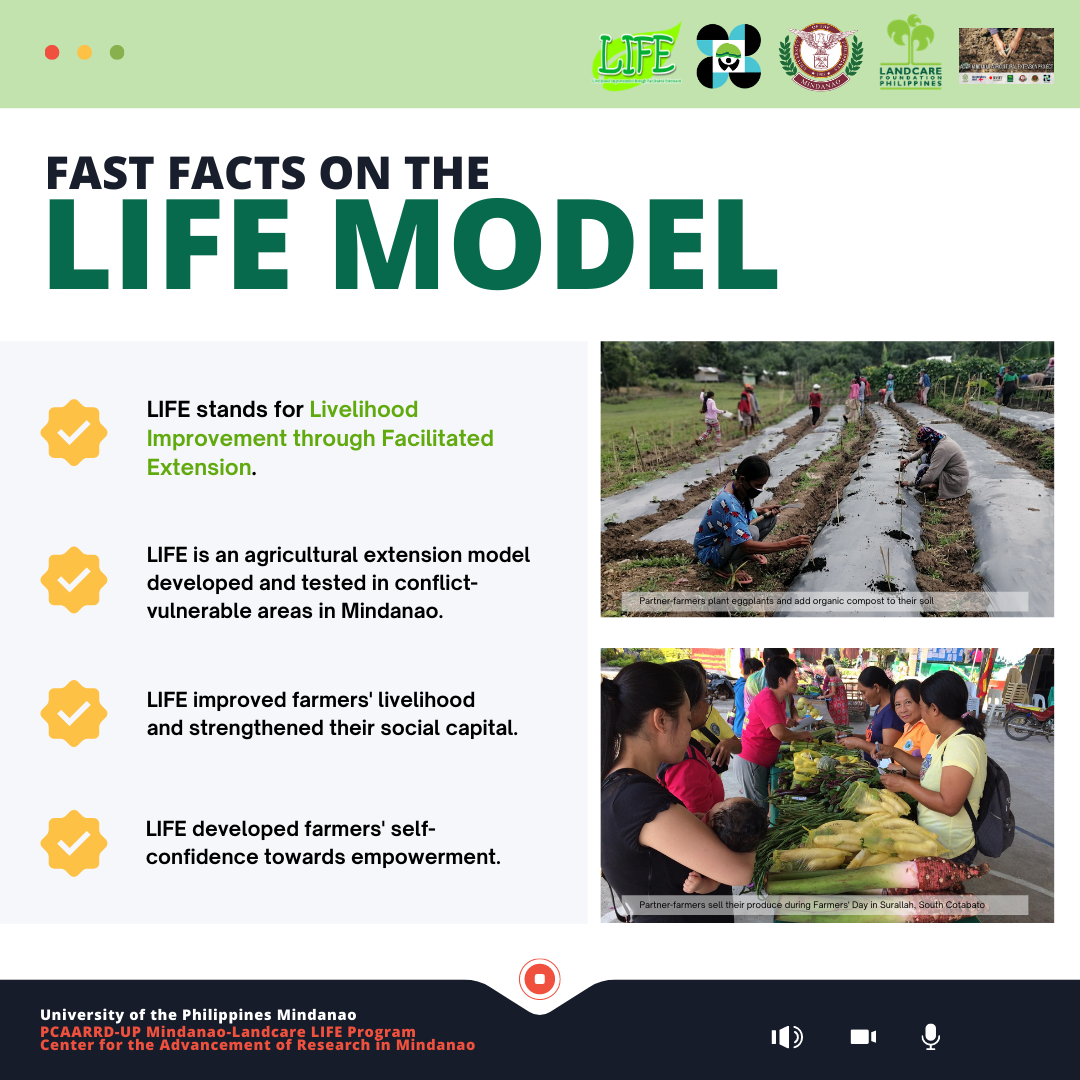 |
 |
 |

The University of the Philippines Office of Admissions (UP OAdms) has extended the deadline for the online submission of Form 2 by high schools with students applying to UP from 31 March to 15 April 2021.
This will be the ultimate deadline in order for the University to proceed with the processing of applications in time for the opening of Academic Year (AY) 2021-2022.
Slower rate of online submissions
The extension of the deadline for the online submission of Form 2 was made in light of the notices and requests from many high schools to further extend the period for the submission of the grades of their students applying to UP.
On top of the already considerable job of collating and submitting the grades of their student-applicants, high schools are also dealing with the impact of COVID-19. This has resulted in a slower rate of submissions due to modified work arrangements. The declaration of enhanced community quarantine (ECQ) over the National Capital Region (NCR) and four other provinces due to the rise in the number of COVID-19 cases, and the localized lockdowns elsewhere in the country, are further contributing to the delays in data integration and quality check.
Among the 108,350 who applied for first-year admission to UP for the coming academic year, an estimated 32,200 Form 2 submissions are yet to come in. This is in spite of intensified efforts on the part of UP to assist the high schools by providing more Helpdesk volunteers and more Data Control personnel proactively reaching out to high schools to offer assistance, as well as the additional help given by the UP Ugnayan ng Pahinugod’s systemwide network.
Modified timeline
The UP OAdms’ newly modified timeline sets the final deadline of all UP first-year application requirements (both Form 1 and Form 2) on 15 April. Given the adjustments in the admissions process, the UP OAdms sets the most realistic time of release of qualified UP applicants on or before 15 July 2021.
As before, high schools that have not received any notification, have changed their registered email address, or are having difficulty with online submission are advised to contact as soon as possible.
Any inquiries, concerns and requests for assistance may also be coursed through the Online Helpdesk found in the UP Office of Admissions FB page. The Helpdesk is open from 8am to 5pm, Monday to Friday.
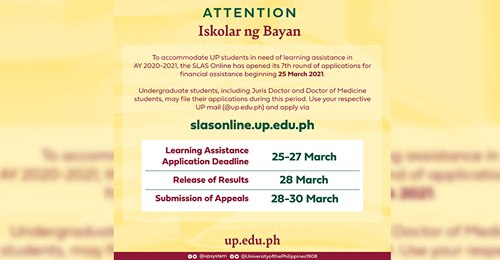 To accommodate UP students in need of learning assistance in AY 2020-2021, the SLAS Online will accept applications beginning 25 March 2021 until 27 March. Results will be released on March 28, while the period for submission of appeals is March 28-30.
To accommodate UP students in need of learning assistance in AY 2020-2021, the SLAS Online will accept applications beginning 25 March 2021 until 27 March. Results will be released on March 28, while the period for submission of appeals is March 28-30.
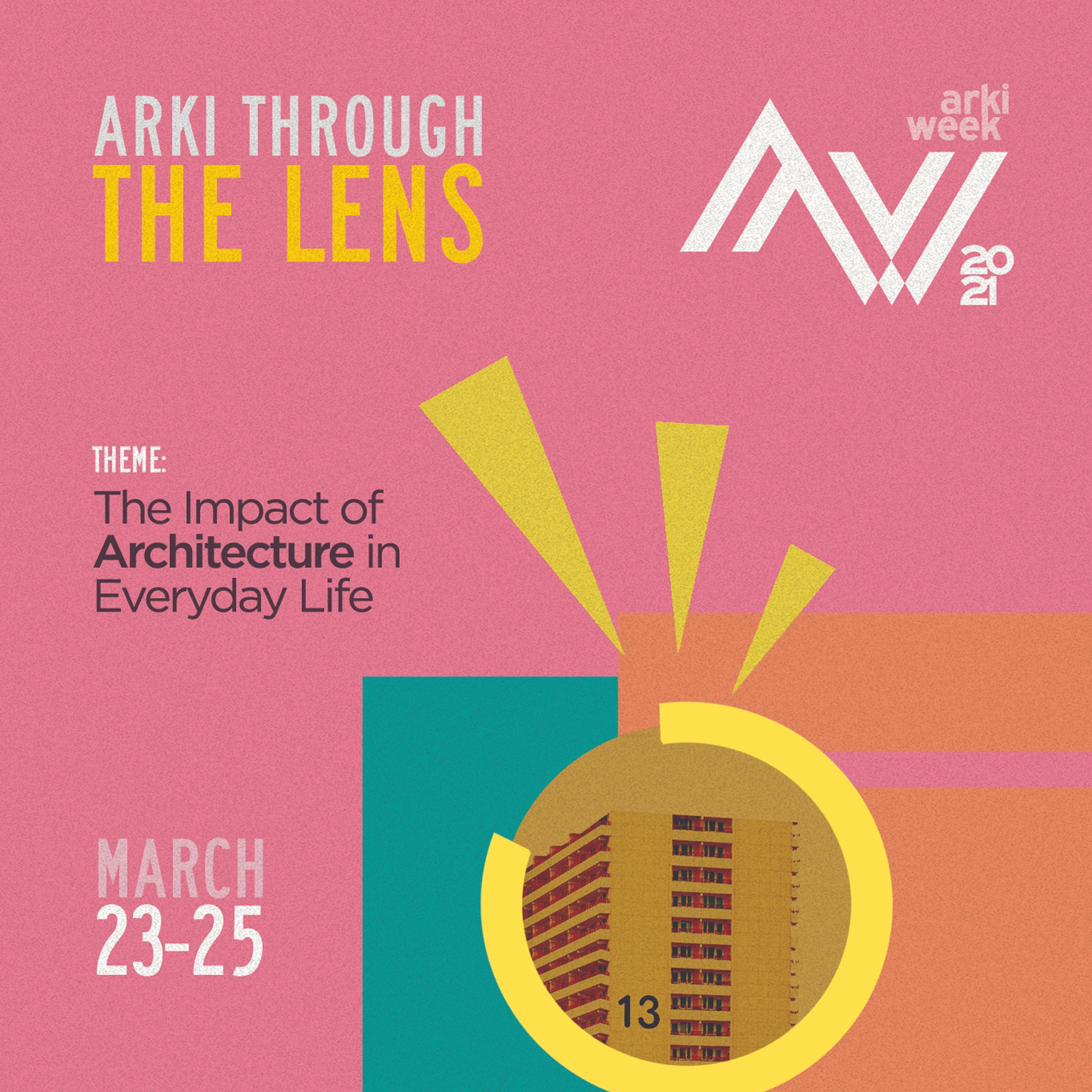 |
 |
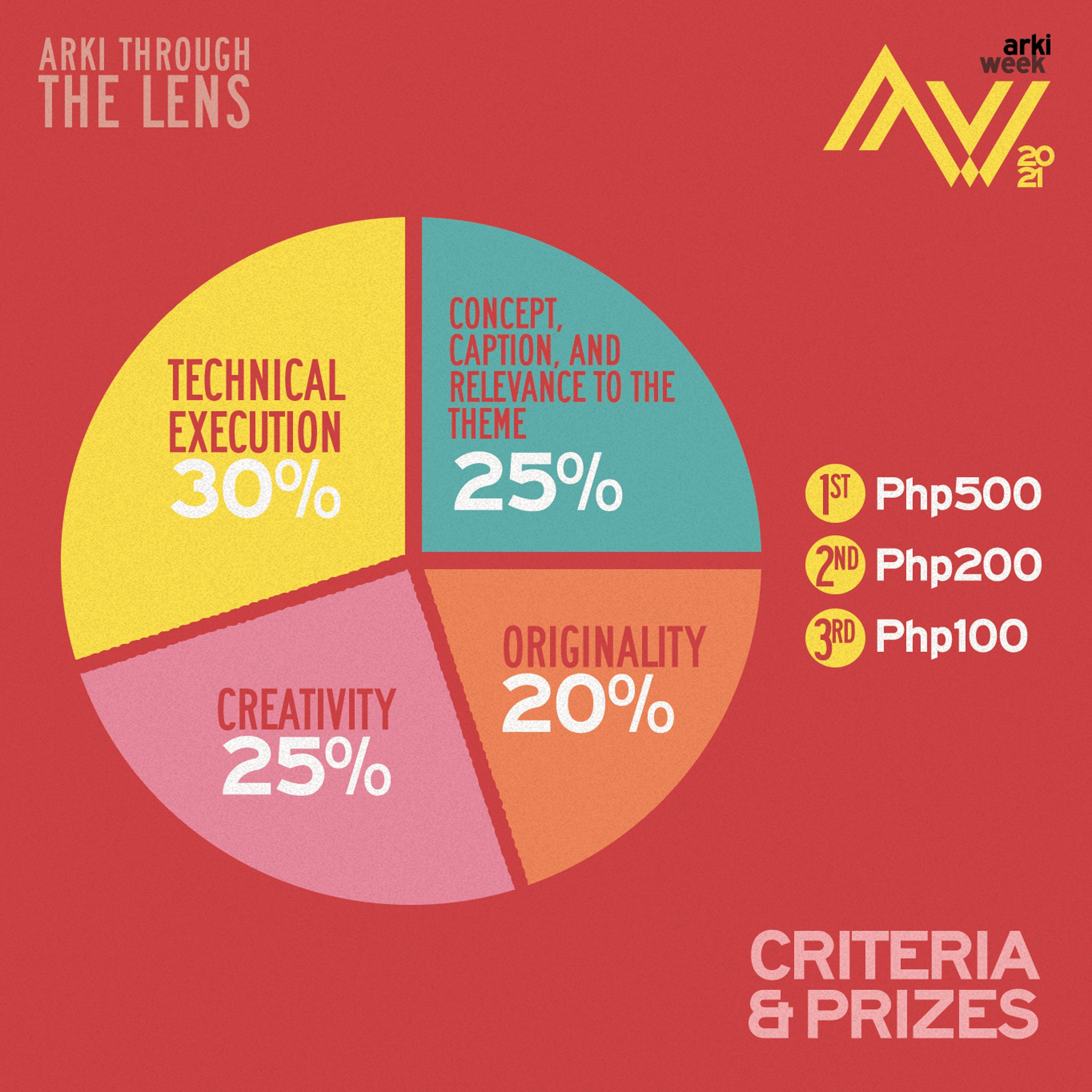 |
|
Read: Chancellor's March 2021 Report to the President's Advisory Council
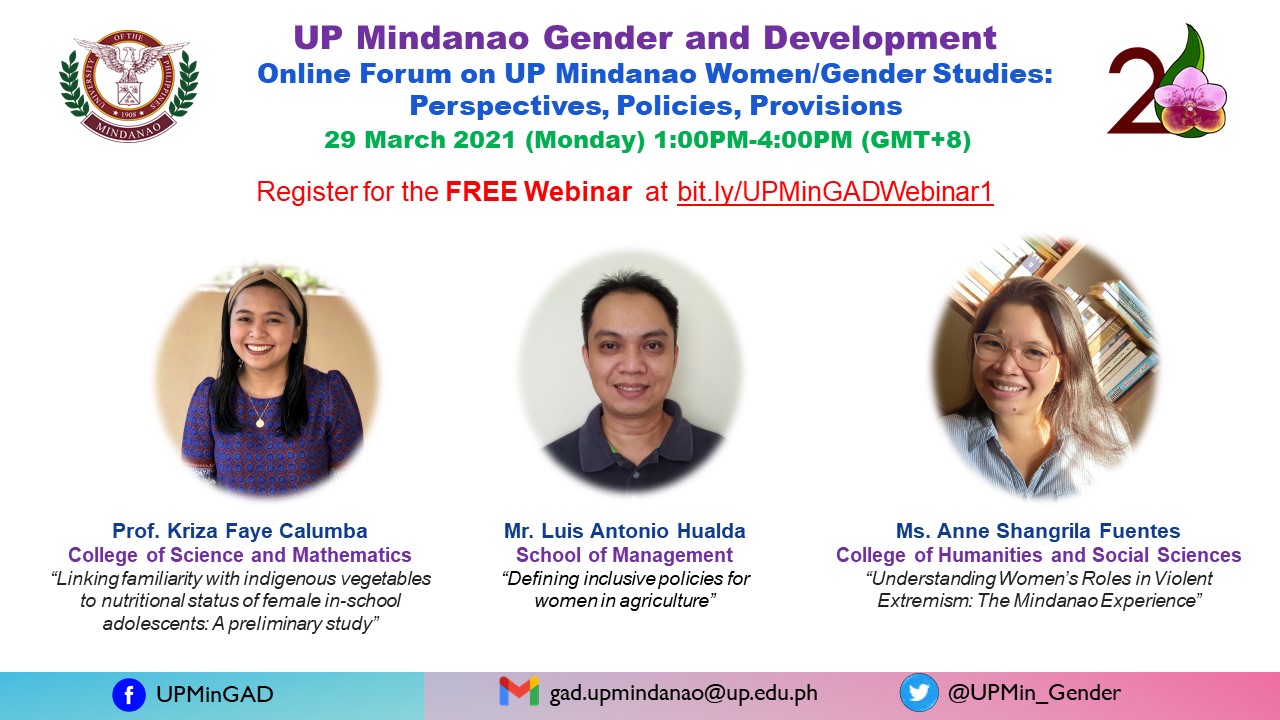 |
 |
 |
|
 |
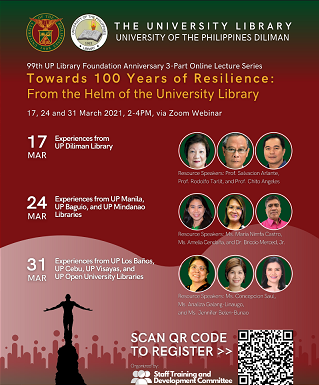 |
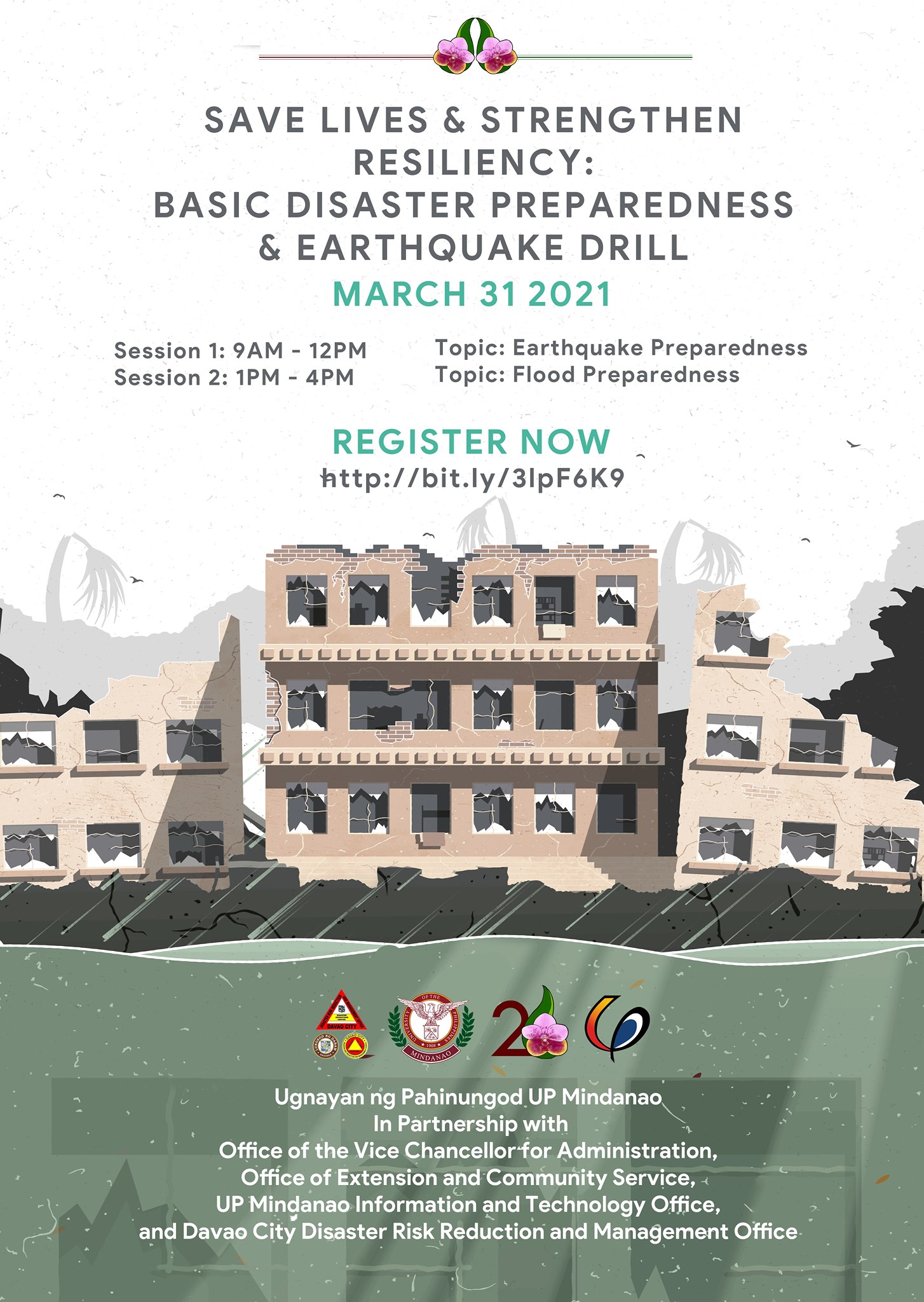 |
01 - 31 March - The University of the Philippines Mindanao joins the country in celebrating the 2021 National Women's Month (NWM). In line with this year's campaign, "Juana Laban sa Pandemya: Kaya!", we are proud to highlight resilience during this pandemic time through this photo series. #WomenMakeChange. To learn more and participate in other NWM initiatives, visit https://pcw.gov.ph/2021-national-womens-month/
17, 24, and 31 March - "Towards 100 Years of Resilience: From the Helm of the University Library" A three-part online lecture series/webinar on the development of the University Library. On 17, 24, and 31 March 2021, 2:00 - 4:00 PM via Zoom Webinar. Register through the link: https://up-edu.zoom.us/webinar/register/WN_TBfuBd_gTo6Ur5M0XwskfA.
23-26 March - Arki Week, spearheaded by the Architecture Student Council. #UPMindanAW2021
27 March - "#GirlBoss Breaking Barriers: A Storytelling of Women Startup Founders," 27 March 2021 (Saturday), 10:00 a.m. via Zoom. Registration: https://bit.ly/3bcivNw. Organized by the University of the Philippines Growing and Developing Enterprises (UPGraDE), Gender and Development Office, and Davao City Integrated Gender and Development Division, in line with the National Women’s Month celebration.
29 March - "Forum on UP Mindanao Women/Gender Studies: Perspectives, Policies, Provisions," 29 March 2021, 1-4PM Via Zoom™. For more details http://bit.ly/29March2021Announcement. Register at bit.ly/UPMinGADWebinar1
30 - 31 March - Assoc. Prof. John Bengan is the emcee at the online "Reading the Regions 2" conference that is organized by the National Committee on Literary Arts
31 March - "Save Lives & Strengthen Resiliency: Basic Disaster Preparedness & Earthquake Drill" a webinar on earthquake and flood preparedness. 31 March 2021: Session 1: 9AM - 12PM, Earthquake Preparedness; Session 2: 1PM - 4PM, Flood Preparedness. Registration link: http://bit.ly/3lpF6K9.
Lock full review www.8betting.co.uk 888 Bookmaker